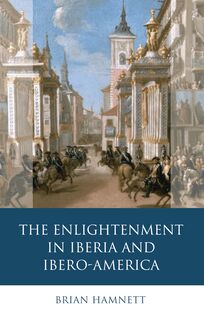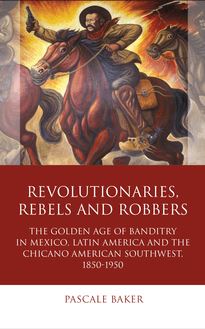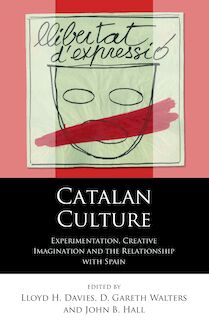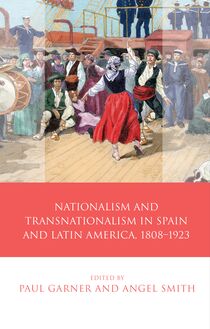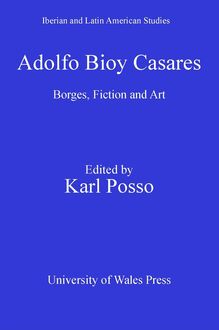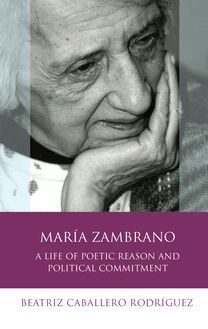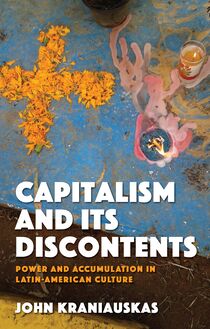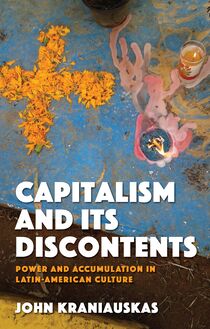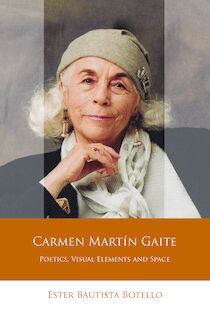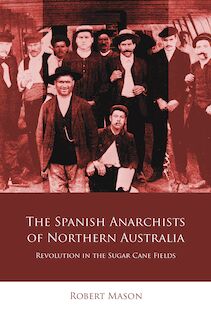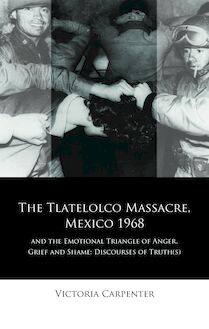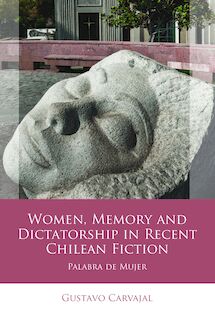-
 Univers
Univers
-
 Ebooks
Ebooks
-
 Livres audio
Livres audio
-
 Presse
Presse
-
 Podcasts
Podcasts
-
 BD
BD
-
 Documents
Documents
-
- Cours
- Révisions
- Ressources pédagogiques
- Sciences de l’éducation
- Manuels scolaires
- Langues
- Travaux de classe
- Annales de BEP
- Etudes supérieures
- Maternelle et primaire
- Fiches de lecture
- Orientation scolaire
- Méthodologie
- Corrigés de devoir
- Annales d’examens et concours
- Annales du bac
- Annales du brevet
- Rapports de stage
La lecture à portée de main
Vous pourrez modifier la taille du texte de cet ouvrage
Découvre YouScribe en t'inscrivant gratuitement
Je m'inscrisDécouvre YouScribe en t'inscrivant gratuitement
Je m'inscrisEn savoir plus
Vous pourrez modifier la taille du texte de cet ouvrage
En savoir plus

Description
Sujets
Informations
| Publié par | University of Wales Press |
| Date de parution | 15 octobre 2011 |
| Nombre de lectures | 0 |
| EAN13 | 9781783164837 |
| Langue | English |
Informations légales : prix de location à la page 0,0824€. Cette information est donnée uniquement à titre indicatif conformément à la législation en vigueur.
Extrait
IBERIAN AND LATIN AMERICAN STUDIES
The Films of El as Querejeta
Series Editors
Professor David George (Swansea University)
Professor Paul Garner (University of Leeds)
Editorial Board
David Frier (University of Leeds)
Lisa Shaw (University of Liverpool)
Gareth Walters (Swansea University)
Rob Stone (Swansea University)
David Gies (University of Virginia)
Catherine Davies (University of Nottingham)
Richard Cleminson (University of Leeds)
IBERIAN AND LATIN AMERICAN STUDIES
The Films of El as Querejeta
A Producer of Landscapes
TOM WHITTAKER
Tom Whittaker, 2011
All rights reserved. No part of this book may be reproduced in any material form (including photocopying or storing it in any medium by electronic means and whether or not transiently or incidentally to some other use of this publication) without the written permission of the copyright owner except in accordance with the provisions of the Copyright, Designs and Patents Act 1988. Applications for the copyright owner s written permission to reproduce any part of this publication should be addressed to The University of Wales Press, 10 Columbus Walk, Brigantine Place, Cardiff, CF10 4UP.
www.uwp.co.uk
British Library CIP A catalogue record for this book is available from the British Library.
ISBN 978-0-7083-2438-7 (paperback) 978-0-7083-2437-0 (hardback) e-ISBN 978-1-78316-483-7
The right of Tom Whittaker to be identified as author of this work has been asserted in accordance with sections 77, 78 and 79 of the Copyright, Designs and Patents Act 1988.
Cover image: El esp ritu de la colmena ( The Spirit of the Beehive ), 1973, El asQuerejeta (prod.) and Victor Erice (dir.); courtesy Video Mercury Films.
Contents
Series Editors Foreword
Acknowledgements
Introduction Producing Resistance: El as Querejeta s Political Landscapes
Chapter 1: Geographies of Anxiety
Chapter 2: Spaces of Violence
Chapter 3: Infinite Landscapes
Chapter 4: Rediscovering Roots: Ecology, Land and Region
Chapter 5: No-Man s-Land: Transitional Space and Time
Chapter 6: Global Spaces
Conclusion
Notes
Filmography
Works Cited
Series Editors Foreword
Over recent decades the traditional languages and literatures model in Spanish departments in universities in the United Kingdom has been superseded by a contextual, interdisciplinary and area studies approach to the study of the culture, history, society and politics of the Hispanic and Lusophone worlds - categories that extend far beyond the confines of the Iberian Peninsula, not only in Latin America but also to Spanish-speaking and Lusophone Africa.
In response to these dynamic trends in research priorities and curriculum development, this series is designed to present both disciplinary and interdisciplinary research within the general field of Iberian and Latin American Studies, particularly studies that explore all aspects of cultural production (inter alia literature, film, music, dance, sport) in Spanish, Portuguese, Basque, Catalan, Galician and indigenous languages of Latin America. The series also aims to publish research in the History and Politics of the Hispanic and Lusophone worlds, at the level of both the region and the nation-state, as well as on Cultural Studies that explore the shifting terrains of gender, sexual, racial and postcolonial identities in those same regions.
Acknowledgements
This book would not have been possible without Peter Evans and Parvati Nair, who, as first and second supervisor of my doctoral thesis, gave me expert guidance and unswerving encouragement. I would like to thank Peter Evans for his inspiration: it was through his absorbing lectures at Queen Mary, University of London, that as an undergraduate I first became fascinated with Spanish cinema. Parvati Nair s intellectual generosity and thorough readings of my work were also invaluable. I wish to thank Rob Stone and Federico Bonaddio, who were the examiners of my thesis, for their thoughtful suggestions, and Rob, in particular, for encouraging me to publish it as a book. Thanks are due also to Trinidad del R o at the Filmoteca Espa ola in Madrid, who assisted me with the essential task of viewing the films, and to the staff at the Biblioteca Nacional, who helped me with the historical and sociological sources. I would especially like to thank El as Querejeta, and his colleagues at El as Querejeta Producciones Cinematogr ficas (El as Querejeta PC), for giving me access to films and scripts. The team at University of Wales Press, especially Sarah Lewis and Elin Lewis, have also provided excellent support and patience during the production of this book.
A special thanks to my past friends and colleagues at Queen Mary, and my present colleagues at Kingston University, who have all offered their support and kindness over the years. Finally, I would like to thank my Dad, for instilling in me a sense of wonder of the world as a child. And, of course, to Michael for his patience, humour and kindness. Without his emotional support, I am sure this book would not have been possible.
Earlier drafts of some of the material in this book have been published elsewhere in journals: Tom Whittaker (2007). Infinite Landscapes in Guti rrez Arag n s Habla, mudita . Studies in Hispanic Cinemas 3.2: 89-90; Tom Whittaker (2008). No-man s Land: Transitional Time and Space in Carlos Saura s Deprisa, deprisa . Bulletin of Hispanic Studies 85.5: 679-94; Tom Whit-taker (2009). Geographies of Anxiety: Space, Modernization and Sexuality in Antx n Eceiza s El pr ximo oto o and De cuerpo presente . Studies in European Cinema 6.1: 7-16; Tom Whittaker (2010). Producing Resistance: El as Querejeta s Political Landscapes . Jump Cut: A Review of Contemporary Media 53.
Introduction
Producing Resistance: El as Querejeta s Political Landscapes
The producer as auteur
To speak of the producer El as Querejeta, who was born in Hernani in 1934, is to speak of the history of modern Spanish film. From the early 1960s to the present day, he has overseen the production of fifty-nine feature-length films. Many of these have been among the most important in the history of Spanish cinema: El esp ritu de la colmena ( Spirit of the Beehive ) (V ctor Erice, 1973), Cr a cuervos ( Raise Ravens ) (Carlos Saura, 1975) and Barrio (Fernando Le n, 1998), for instance, have earned critical acclaim with domestic critics and film festivals alike, while catapulting their respective directors to international fame.
His method of production is unique. Unlike most producers, his role stretches far beyond the usual industrial concerns such as fundraising, distribution and coordination. More a creator than a producer, he most regularly has a hand in every artistic aspect of the film-making process. His intervention is most evidently felt in the development stages of the film: Querejeta has co-written no fewer than twenty-two screenplays of his forty-seven Spanish productions, which include the critically acclaimed films El desencanto ( The Disenchantment ) (Jaime Ch varri, 1976) and Deprisa, deprisa ( Hurry, Hurry! ) (Carlos Saura, 1980). 1 Elsewhere, where he has not been credited as co-writer, Querejeta has offered financial backing to screenplays which are presented in their earliest stages of conception, thus enabling him to oversee their development. The director Fernando Le n s proposal for Barrio was a case in point: the producer gave the film the provisional go-ahead on the basis of a brief synopsis which Le n had scribbled on a letter (Ponga et al., 2002, p. 39). For Querejeta, the scriptwriting stage is largely an organic and open-ended process: it usually entails lengthy discussions between the producer and the director, and is then subject to any number of revisions during the shooting of the film. The development stages of El esp ritu de la colmena , for instance, took several months of discussions between Erice and Querejeta before even a final treatment was formed. This holistic approach to screenwriting is quite unlike that of many larger and more commercial production houses, who treat the development of the script and the production of the film as two progressively discrete stages.
His creative presence also permeates all other artistic and formal aspects of the film-making process, which are usually placed under the guidance of the director. According to the director Manuel Guti rrez Arag n, who collaborated with Querejeta on Habla, mudita ( Speak Little Mute ) (1973) and Feroz ( Fierce ) (1984), the producer se mete en las pel culas, en el trabajo del director y del guionista, y creo que hace bien (Chamorro, 1985, p. 118). 2 Similarly, Jaime Ch varri, who worked with the producer on El desencanto ( The Disenchantment ) (1976), A un di s desconocido ( To an Unknown God ) (1977) and Dedicatoria ( Dedication ) (1980), says that para un director que trabaje con l es muy dif cil no comunicar lo que El as comunica sin ser consciente de ello (Baza, 2000, p. 56). 3 These observations are largely in tune with the way in which Querejeta perceives his own role, which he outlines as follows:
El productor debe estar al tanto de todos los medios que suponen la realizaci n de una pel cula. Y si trabaja de una manera rigurosa debe tener en cuenta que la pel cula le llega no solamente al lado del gui n, del pretendido proyecto literario, sino desde otros muchos elementos: la luz, los escenarios, el vestuario. (1994, p. 38) 4
If the directors above have absorbed the influence of the producer, then so too has Querejeta s artistic vision been moulded by the directors. Indeed, the producer has commented that Erice, Saura and, in particular, Antx n Eceiza have each had a significant impact on his production method (Heredero, 1987, p. 8).
While his hands-on approach has contributed towards consistently high production values, it has also triggered collisions of interest with some directors and members of the crew. Over the years, this has undoubtedly contri
-
 Univers
Univers
-
 Ebooks
Ebooks
-
 Livres audio
Livres audio
-
 Presse
Presse
-
 Podcasts
Podcasts
-
 BD
BD
-
 Documents
Documents
-
Jeunesse
-
Littérature
-
Ressources professionnelles
-
Santé et bien-être
-
Savoirs
-
Education
-
Loisirs et hobbies
-
Art, musique et cinéma
-
Actualité et débat de société
-
Jeunesse
-
Littérature
-
Ressources professionnelles
-
Santé et bien-être
-
Savoirs
-
Education
-
Loisirs et hobbies
-
Art, musique et cinéma
-
Actualité et débat de société
-
Actualités
-
Lifestyle
-
Presse jeunesse
-
Presse professionnelle
-
Pratique
-
Presse sportive
-
Presse internationale
-
Culture & Médias
-
Action et Aventures
-
Science-fiction et Fantasy
-
Société
-
Jeunesse
-
Littérature
-
Ressources professionnelles
-
Santé et bien-être
-
Savoirs
-
Education
-
Loisirs et hobbies
-
Art, musique et cinéma
-
Actualité et débat de société
- Cours
- Révisions
- Ressources pédagogiques
- Sciences de l’éducation
- Manuels scolaires
- Langues
- Travaux de classe
- Annales de BEP
- Etudes supérieures
- Maternelle et primaire
- Fiches de lecture
- Orientation scolaire
- Méthodologie
- Corrigés de devoir
- Annales d’examens et concours
- Annales du bac
- Annales du brevet
- Rapports de stage
